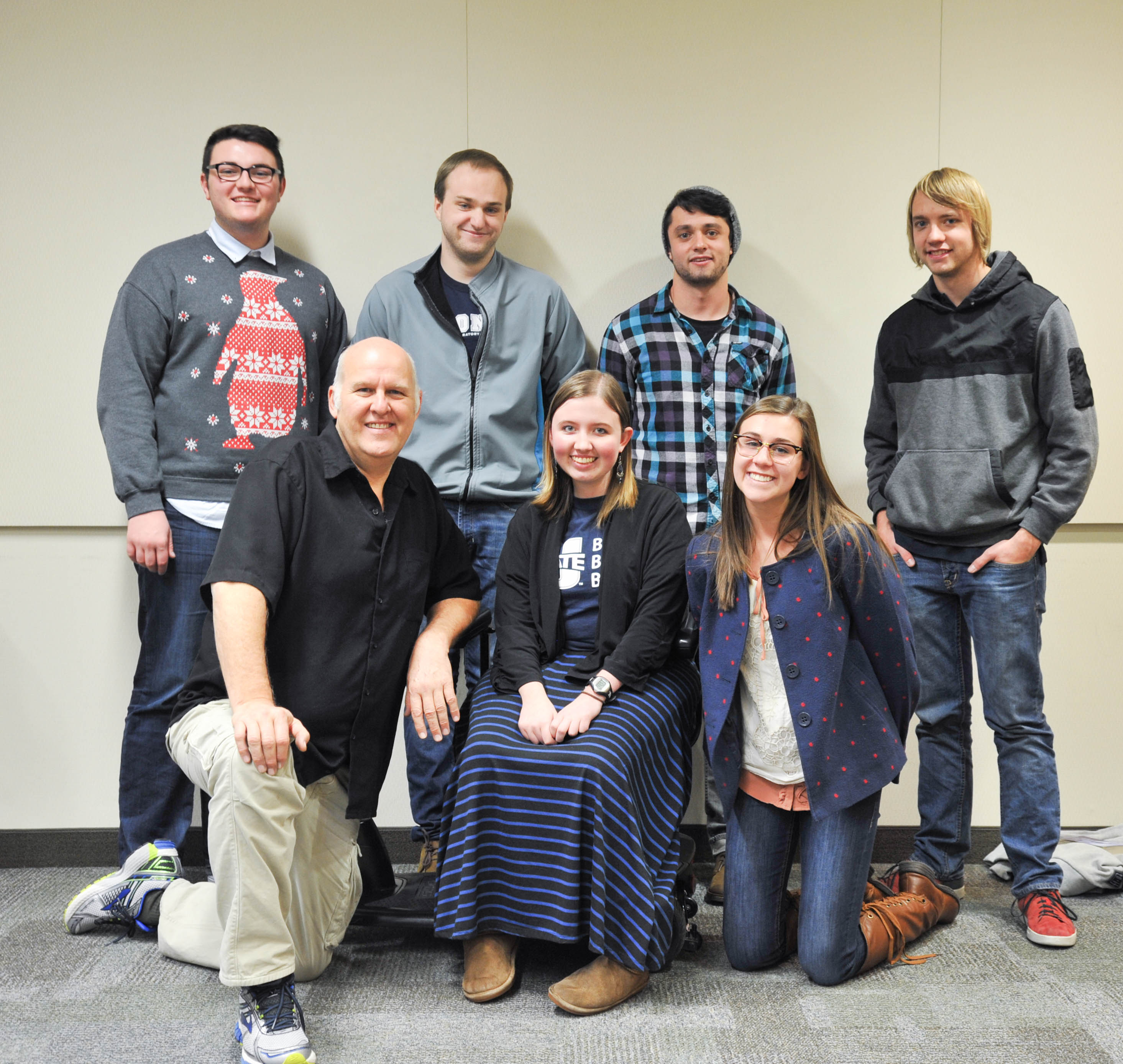Place-winning debate team to lose funding
Over the weekend, the Utah State University debate team placed first in their tournament, which is much of the usual for this group.
“We do very well,” said Tom Worthen, the director of forensics at USU and coach of the debate team.
Worthen said the team has taken first in most of its tournaments for the past 11 or 12 years, taking nationals in 2010.
But due to a loss of funding, the team will have to cut the number of tournaments it attends in half, which, in turn, could turn this first-place team into just another team.
“People can still compete, but not as well when they go to fewer tournaments,” Worthen said. “When you go to one or two tournaments instead of three or four, it’s hard to keep first.”
The debate team is not a budgeted item at USU, and, up until a few years ago, it was funded mostly by its coach. When the university heard of his donation, they offered to match him through departmental money, donations or other outside sources — Worthen gave $5,000, the university gave $5,000.
But eventually, the money ran out.
Worthen said he is grateful for what they can do with what they have, and they’ll take what they can get, but it won’t allow them to compete at the same level.
Mariah Andreasen, the secretary for the debate team, said the loss of funding horrifies her.
“The debate team has helped me and influenced me so much,” she said.
Andreasen said members of the team put in approximately 12 hours a week writing, memorizing and practicing for debate, and by the time tournaments roll around, the time has added up. With only one or two tournaments, the time may not be worth it.
“You put in 40 hours for two speeches you get to perform once,” she said.
She said this could affect membership to the team.
“It makes me kind of sad that there’s going to be a missed opportunity for those coming to USU,” she said.
The team has discussed fundraising, but Andreasen said it could limit membership and dedication more.
“People could fundraise,” she said, “but I know it would limit people’s opportunities.”
Many of the students on the team are working part-time jobs in addition to school and debate, which doesn’t leave much time for fundraising, she said.
USU is the only team not school-funded in the North Western Forensic Conference, Worthen said. Most of the other teams give out scholarships to their members.
“Utah State doesn’t put priority on academic extracurricular activities as much as they do on football or basketball,” Andreasen said. “There’s merit to expressing yourself in an academic setting.”
Jeff Sonderreger, the academic senator for the college of humanities and social sciences, put the debate team’s funding on his platform for election last May.
“I don’t mean to criticize, but it makes me question how much students are in power,” Andreasen said.
Sonderreger declined to comment on funding.
“They compete in regional competitions and have historically done very well,” Sonderreger said.
Andreasen hopes, though the funding hasn’t been saved, more awareness of the issue could change that.
“I think if we could show whoever is in charge of funding the merit of debate and how it has influenced so so so many people, they may be able to allocate funds,” she said.
Worthen said the team is always accepting donations. In the meantime, the team will continue to compete because it is good for the university and good for the students.
“We all do it because we believe in the activity and it’s good for the university,” he said.
— reid.al73@gmail.com
@alreid000


Kind of sad that an academically focused team doesn’t get sufficient funding when the university reportedly loses over ten million dollars each year in the athletic program.